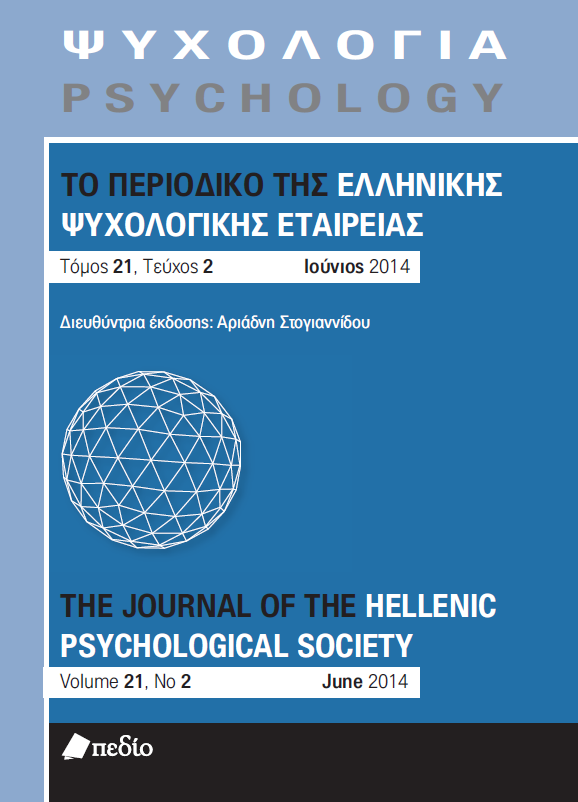Academic Procrastination in Greek Higher Education: Shedding Light on a Darkened yet Critical Issue

Abstract
Αcademic procrastination, characterized by self-regulation difficulties in delaying the start or completion of academic tasks (Ferrari, 2010), is widespread among university students. One of the most widely used measures of academic procrastination is Procrastination Assessment Scale Students (PASS, Solomon &Rotblum, 1984). However, there is a
dearth of research investigating its factorial structure using confirmatory factor analysis. Greek studies on academic procrastination are also scarce. The present study investigated academic procrastination among Greek university students (n = 865),as well as the factorial structure of PΑSS. Results from a CFA supported a one factor solution. Moreover, 40.5% of students were characterized as frequent procrastinators, towards reading for the exams, writing essays or attending classes. The reasons students gave for procrastinating were “fear of failure”, “task aversion”, “fear of success /peer pressure” and “lack of assertiveness/ time management skills”. No major, age, or gender differences in academic procrastination were detected. Finally, most students wished to participate in a future anti-procrastination program. Findings increase the ecological validity of current literature and could be potentially useful for counselors and researchers
Article Details
- How to Cite
-
Argiropoulou, M. I., Κalantzi A., & Ferrari, J. R. (2020). Academic Procrastination in Greek Higher Education: Shedding Light on a Darkened yet Critical Issue. Psychology: The Journal of the Hellenic Psychological Society, 21(2), 149–160. https://doi.org/10.12681/psy_hps.23273
- Issue
- Vol. 21 No. 2 (2014)
- Section
- RESEARCH PAPERS

This work is licensed under a Creative Commons Attribution-ShareAlike 4.0 International License.
The journal PSYCHOLOGY adopts a Platinum open-access policy. Submission, processing or publication costs are waived by the Hellenic Psychological Society. Papers published in the journal PSYCHOLOGY are licensed under a 'Creative Commons Attribution-ShareAlike 4.0 International' licence. The authors reserve the copyright of their work and grant the journal the right of its first publication. Third-party licensees are allowed to use the published paper immediately after publication as they wish, provided they retain the defined by the license copyright formalities, regarding the reference to its author(s) and its initial publication in the journal PSYCHOLOGY. Moreover, any adjusted work should be shared under the same reuse rights, so with the same CC license.


